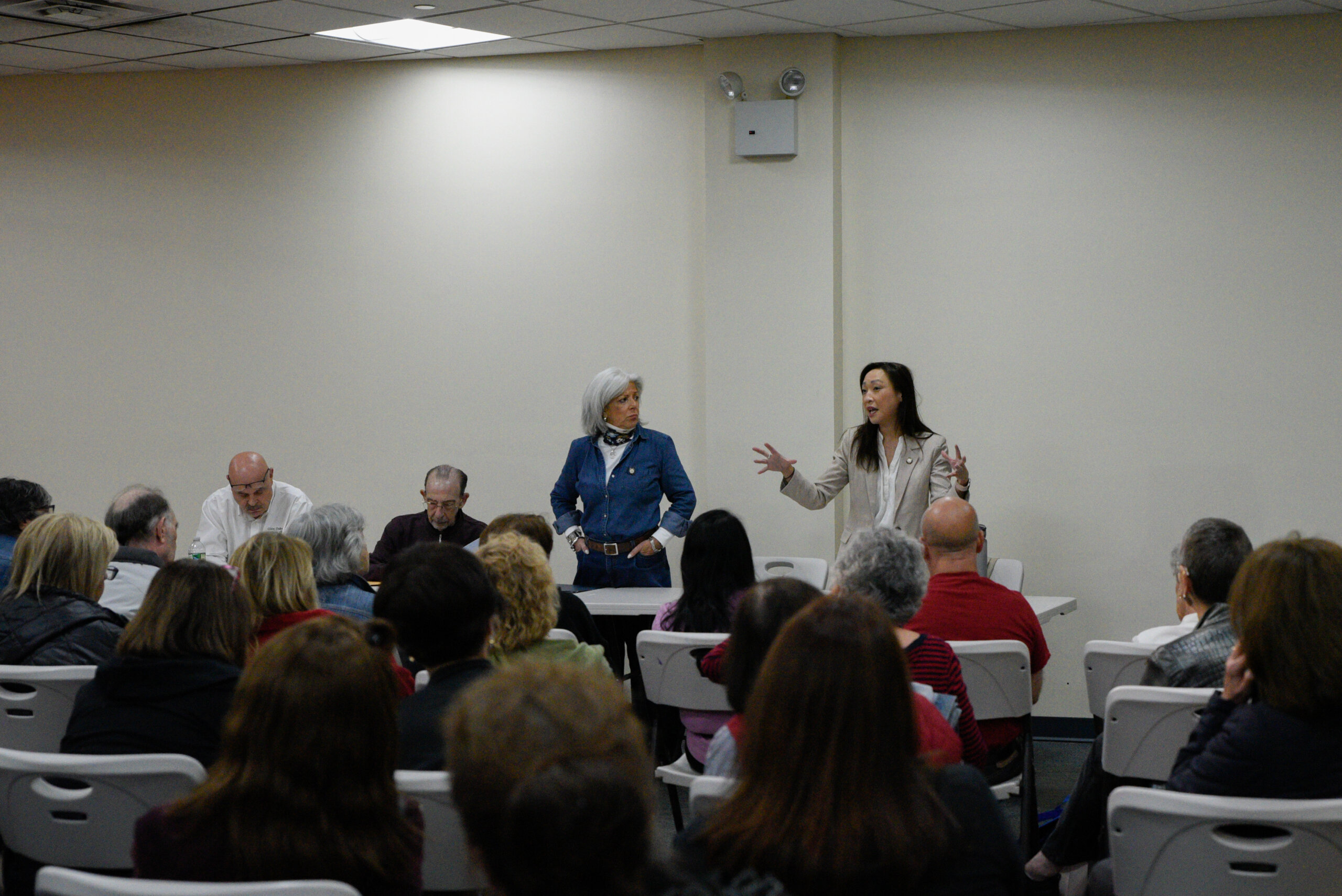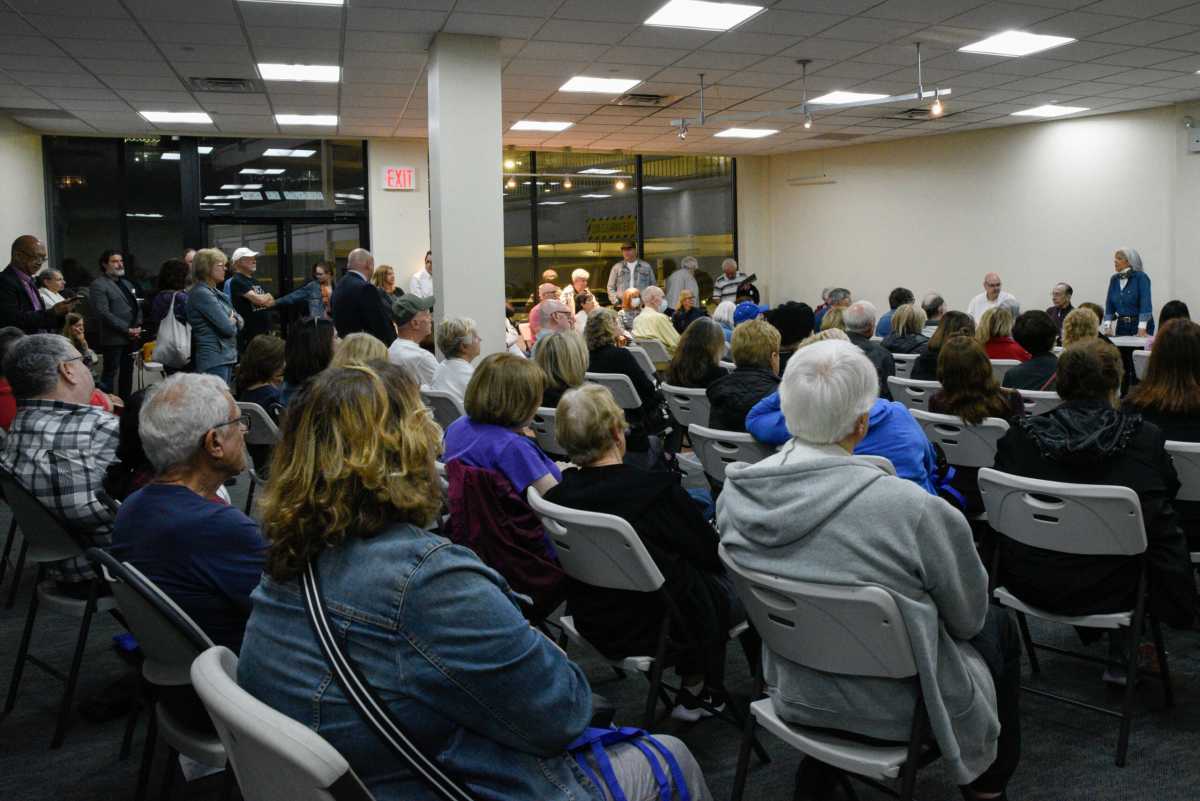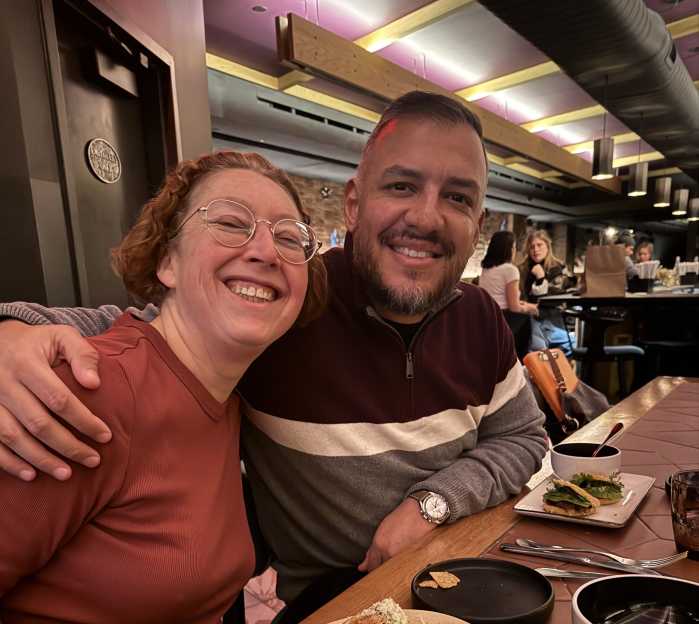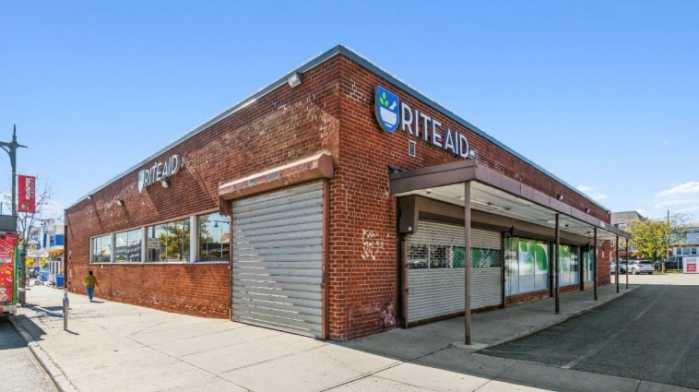Council Members Vickie Paladino and Linda Lee both introduced bills against Local Law 97 in its current form and are now calling on their constituents to take action against the effort to curb building pollution.
A town hall held in Bayside’s Bay Terrace Shopping Center on Thursday, Oct. 26, brought out over 100 residents who are concerned about not meeting compliance with the law set to go into effect next year and having to fund costly upgrades.
Throughout the night, dozens of hands went up with most attendees showing a solid grasp on the bill’s intricacies. Many had already learned about the bill at past town halls. This time around, their questions were pointed at how they can continue taking action against Local Law 97 in its current form.

“This is about saving the necks of the middle class,” said Paladino. “It’s got to be stopped. It’s got to be reined in.”
Local Law 97 was passed by the city in 2019 in an effort to reduce the city’s greenhouse gas emissions and make it carbon neutral by 2040. Approximately 40% of Queens buildings are already in compliance with the law.
“It is the greatest unfunded mandate that the city council has ever imposed on their constituents,” said Robert Friedrich, president of the Glen Oaks Village.
He also shared figures on what the cost of compliance would be for his buildings, adding that those living in newer and more expensive, buildings are most likely already in compliance and will not need to bear the costs.

Compliance would require building owners to undertake the costs of retrofitting their heating, hot water and ventilation systems to meet building standards. Particularly co-op owners, less so than renters, are worried about the potential costs that will be incurred in implementing the necessary changes.
Friedrich calculated that in Glen Oaks Village, it would cost $24.5 million to install new boilers to heat the buildings. And if they don’t, the penalty in just 2024 would be $394,000 and rise to $1.5 million by 2030. He added that even if the new boilers were installed, the fees would only be reduced by 50% because the older building would not meet the greenhouse gas emissions requirements.
“Affordable co-ops, as we all know, are the entry tier for most first time homebuyers. And they are the last bastion of affordable housing,” said Friedrich. “But the crippling costs of local law 97 really changes that affordability and working class families living in older buildings, like our building, will bear the cost burden of compliance.”

Paladino’s bill Int 0913, introduced in February 2023, hopes to delay the greenhouse gas emission reduction requirements outlined in the law by seven years. It is sponsored by Queens City Council Members Linda Lee, Robert Holden, Sandra Ung and Joann Ariola, as well as several others from Brooklyn.
Lee’s bill Int 1037, introduced a bit later in May, seeks to bring financial relief. She says she was also one of the first to sign on to Paladino’s bill, reflecting the bipartisan nature of this issue. It would amend the definition of “covered building” for the purpose of emissions limits outlined in the law. Lee’s bill is so far sponsored by Ung and Paladino.

“Local Law 97 and affordable housing do not go together,” said Warren Schreiber, co-president and founder of the Presidents Co-op & Condo Council, which represents more than 100,000 units across the city.
He added that the law is going to “destroy” the American dream as the city will use the mandate to “balance the city budget on our backs and shoulders.”
Paladino and Lee called on the attendees to “flood” the city council members who have not signed on to their bills with daily calls and emails.
“We’re doing our part but we need to show them that people are motivated enough to take ten minutes out of their day to fight,” said Paladino.


































